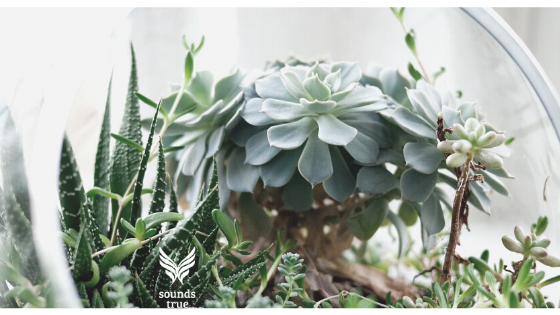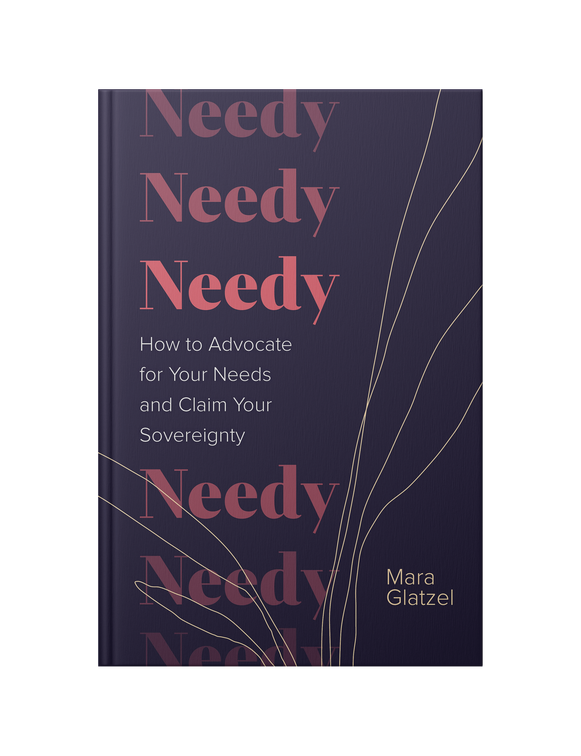4 Tips to Get Back to Secure Attachment

When we talk about what secure attachment looks like, it’s not unusual for people to give themselves a hard time. It seems like such a high bar, and when we look at it that way, it’s easy to feel not quite up to snuff. I can relate to that feeling, and I think it’s quite normal for everyone to feel that way from time to time.
We all have emotional reactions we’re not proud of, and most of us contribute our fair share to arguments and unnecessarily difficult conversations. And many of us simply aren’t as present as we’d like to be. We don’t feel quite here enough—either we’re distracted by one thing or another, or we’re not as attentive as we think we should be. Again, all of this is normal. Most of these things happen regularly—at least they do for me! The main point is to care enough to notice when things are less than ideal. That means having enough presence to know that things are a little off and enough compassion to want to do a retake, to make things better. There’s more wiggle room than you’d think. It’s okay to goof up, make mistakes, and be less than our perfect self. The attachment system is a forgiving system, and it makes a world of difference to register when we miss each other and mend when things go awry as soon as possible.
We can all do a better job, of course, and that’s where practice comes in. I want to offer you ways to practice fostering secure attachment in yourself and others. These are methods for boosting your secure attachment skills. The idea isn’t to ace every one of these, but pick out one or two that you feel called to work on and practice these the best you can. Hopefully, there are secure attachment skills here for everyone—skills you can offer others in your life, skills to practice mutually in your relationships, and skills to encourage secure attachment in yourself.
Secure Attachment Skill #1: Listen Deeply
Let’s start with one of the more obvious skills. We all know the value of listening, but most of us haven’t actually taken the time to develop our listening skills in any ongoing way. When we listen deeply, reflect back to the other person, and ask questions that help us understand them, we allow the other person to inform us of what’s going on with them—not in a superficial way, but in a manner that empowers them to really dive in, feel their feelings, and express them to us until we truly get them. We’re not simply listening until they take a breath so that we can jump into the conversation and say what’s on our mind. Listening deeply means that we respond with considerate questions meant to foster and convey understanding, and we always give space before explaining our perspective.
It’s important to note that when we listen to another person, we don’t have to believe or agree with what they are saying. Really listening to someone means that we don’t immediately respond to what they’re saying with denial or criticism. Instead of negating their concern or getting into an argument about it, we just listen. That’s it. And we can open up the contingency space even further by trying to resonate with them. “I understand why you’d be upset about that, and I can see that really hurt you,” for example. In other words, listening in this way means you’re offering to hold—to contain—whatever it is that they’re dealing with and be present with them, regardless of their emotional responses and reactions.
I think most of us have this in common: more than we want to be convinced otherwise or placated, we just really want to be heard on a deep level. That can be hard at times, of course, because relationships can bring up a lot of stuff for us, and it’s natural to have challenges when dealing with other people, especially those closest to us. But if we can do our best to listen, we can make the best of difficult situations, and we’ll have a much better chance of closing the gap between us and the person we’re listening to.
Secure Attachment Skill #2: Practice Presence
Listening is one of the ways we can show presence, which is one of the most important gifts we can give ourselves and others in relationships. Presence isn’t a static thing; it’s a way of being. Presence means showing up, paying attention, and letting the other person know that we’re there for them with whatever’s going on. It means we do our best to put aside our own worries and concerns and be with them in an undistracted way. This can be hard in today’s world when it’s common to be on our devices so much of the time, but I highly recommend setting your phone or tablet aside when you want to show someone else that you’re truly present for them. Of course, this is impossible to do perfectly all the time, but there are certain things we can do to practice presence in order to become more available to others, as well as to ourselves.
Committing to remain undistracted with another person in a world that is so full of distractions is a powerful and fulfilling practice
Secure Attachment Skill #3: Attune
Attunement can mean a lot of things, but in this
Being dedicated to attunement also keeps us in touch with when we fall out of attunement with others, which is crucial knowledge to have in relationships. We’re oriented toward connection, but we’re also aware when that connection isn’t quite as we’d like it to be. If you feel you are not quite in sync with someone or are concerned that you don’t fully understand their situation or their feelings, ask the person to tell you more about what they are trying to share. Ask caring and clarifying questions.
Secure Attachment Skill #4: Engage in Joint Attention
Joint attention means mutually being there for each other, no matter what you’re doing: meditating together, dancing to your favorite song, telling jokes, making meals, or exercising. Any activity can serve to foster more secure attachment with your partner, child, family member, or friend when enacted with joint attention. You could be watching a movie on the flat-screen from your couch and still practice joint attention (for example, occasionally making eye contact with each other, laughing together, or having a conversation later about the film).
Discover even more secure attachment skills to try in The Power of Attachment: How to Create Deep and Lasting Intimate Relationships by Diane Poole Heller, PhD.

Diane Poole Heller, Ph.D., is an established expert in the field of Child and Adult Attachment Theory and Models, trauma resolution, and integrative healing techniques. Diane developed her own signature series on Adult Attachment called DARe (Dynamic Attachment Re-patterning experience) also known as SATe (Somatic Attachment Training experience). Dr. Heller began her work with Dr. Peter Levine, founder of SETI (Somatic Experiencing® Trauma Institute) in 1989. As Senior Faculty for SETI, she taught Somatic Experiencing® trauma work internationally for over 25 years. As a dynamic speaker and teacher, Diane has been featured at prestigious international events and conferences. She is the author of numerous articles in the field.
Her book Crash Course, on auto accident trauma resolution, is used worldwide as a resource for healing a variety of overwhelming life events. Her film, Surviving Columbine, produced with Cherokee Studios, aired on CNN and supported community healing in the aftermath of the school shootings. Sounds True recently published Dr. Heller’s audiobook Healing Your Attachment Wounds: How to Create Deep and Lasting Relationships, and her book, The Power of Attachment: How to Create Deep and Lasting Intimate Relationships.
As developer of DARe and president of Trauma Solutions, a psychotherapy training organization, Dr. Heller supports the helping community through an array of specialized topics. She maintains a limited private practice in Louisville, Colorado.








